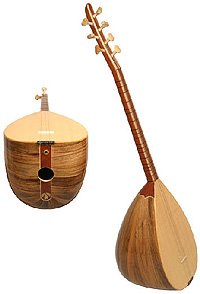Folk Nights and Redemption
For about 10 months or so I’ve been going along to folk sessions in the area, but there are 2 distinct types who don’t really mix. On the one side (alternate Wednesday or Thursday evenings) we have the musicians who are mostly fiddle, flute and pipe players, with the occasional guitar, mandolin, squeezebox and hurdy-gurdy. Many in this group play more than one instrument and the standard of musicianship is exceptionally high. They all know hundreds of tunes that they can all play at breakneck speed, but the one thing they are united in is that they don’t sing and can’t be doing with people who think that folk music is just paying 3 chords and singing with a nasal inflection.
On the other side (Fridays, fortnightly) we have the singers, which mostly comprise of guitarists, many of whom also play the mandolin, plus the occasional bodhrán player, a ukulele player who covers everything from George Formby to Britney Spears, and a single fiddler, who doesn’t sing but is well respected by all nonetheless. While there are bursts of music-only playing, as the evening goes on and the pubs fill up, the singing gets louder, slightly slurred and is often accompanied by a drunken crowd wanting yet another rendition of “Danny Boy”. This group cannot be doing with the “diddley-dee” players who are perceived as possessing a superiority complex and want to steal the limelight away from a moving, soulful voice or a good old sing-along.
I’m one of the very few players who go to both groups
I don’t sing. I know a handful of tunes that I can play well that, unfortunately, nobody else knows. However, once I’ve worked out what key everyone’s in I can usually play some kind of accompaniment either plucking a more basic or complimentary tune or, if I can see the guitarist clearly, strum along the chords. I’ve got by with this for nearly a year, and although I’m steadily improving I always feel like I’m completely outclassed. The fact is that they all know the tunes and I don’t.
Last night, at a sparsely attended diddley-dee session – one fiddle, one tin whistle, one flute and, unusually, no guitarist – there was a guy from Turkey with a Baglama. With its long neck and round back it had a beautiful, deep resonant sound, and when Gürhan played his Turkish folk songs and tunes, the hairs on the back of my neck prickled as I was swept away in an exotic soundscape of Middle-Eastern emotion.
The whole tuning of the instrument, along with a different scale and chord structure made it nigh on impossible for anyone to join in with him, or for him to join in with the traditional Scottish and Irish folk music. So after one or two abortive attempts, the main group played most of the tunes, occasionally giving Gürhan a slot to play something of his own, while admitting that their ears were just not accustomed to such radically different music structures. But I was captivated. I listened intently and eventually thought I could see a way in. At the end of the evening, after the rest of the musicians packed up and left, I re-tuned my mandolin slightly and was able to jam with Gürhan for 20 minutes until we were finally booted out of the pub.
I may not be an expert musician, but I'm not bad at improvising and getting the general gist of what’s going on. In this case it seems to have given me an advantage over those who are so proficient, that their very skill in understanding the patterns of Celtic folk music have also restricted them to that form.
To be fair, with instruments like whistles, flutes and fiddles you have to commit to each note completely as you play it, because a half-hearted attempt will sound awful, but with a mandolin you can dampen the strings as you play until you feel more confident. This made it more difficult for them to improvise with the baglama player.
However, even if no one else was there to witness it, in my own eyes I felt I’d redeemed myself somewhat.

A baglama saz






Post a Comment